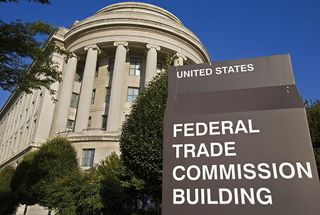Kids Advocates Say FTC Isn't Enforcing COPPA
Argue rise in streaming offerings raises threat level

Children's advocacy groups told the Federal Trade Commission this week that it has been failing to enforce kids online protection for years, allowing Google and others to ignore the Children's Online Privacy Protection Act (COPPA) for years.
It suggested the issue could be exacerbated by the rise of online video with a motive to get in on the children's market.
"The last seven years have also seen growth in child-directed offerings distributed by large platforms, as well as new and expanded streaming services and gaming applications. These platforms that do not appeal exclusively to children have had strong profit-driven incentives to launch products and services directed to kids," they said.
The FTC had asked for comment on whether and how it should update enforcement of its COPPA Rule, and it got an earful from the Center for Digital Democracy, Campaign for a Commercial-Free Childhood, the American Academy of Pediatrics and more than a dozen others.
Related: Senators Warn FTC About Weakening COPPA
“Children are at greater risk today of losing their digital privacy because the FTC has failed to enforce COPPA," said Jeff Chester, executive director of the Center for Digital Democracy. "For years, the Commission has allowed Google and many others to ignore the landmark bipartisan law designed to protect children under 13. It’s time for the FTC to stand up to the big data companies and put the interests of young people and families first.”
They use as an example the FTC's recent action against YouTube.
In September, Google agreed to pay $170 million to settle allegations it violated children's privacy laws, the largest-ever fine for such a violation, with the government saying that YouTube does indeed contain child-directed content.
COPPA only applies to child-directed sites and YouTube has argued that while YouTube Kids obviously is, the mother ship is not. The FTC vote was 3-2 with the Democrats saying the fine was too small.
The groups told the FTC that while they agreed YouTube was liable, the channel owners supplying child-directed content were too and should have also been sanctioned. They also suggested their had been a failure to communicate.
"The large number of comments from content creators in this proceeding suggests that many did not realize they were responsible for complying with COPPA," they pointed out. "Had the FTC acted sooner to enforce the COPPA Rule against YouTube and the creators of child content, these problems could have been minimized."
They told the FTC the first thing it needs to do is to start enforcing the rule already on the books.
"In particular, the FTC should do more to ensure that operators do not collect more information from a child than is reasonably necessary and require operators to protect the confidentiality, security, and integrity of personal information collected from children. It should also revise Rules to encourage increased enforcement by safe harbor organizations."
And when it does enforce, they said, it should speed the process and levy fines that are not just seen as the cost of doing business.
NEXT TV NEWSLETTER
The smarter way to stay on top of the streaming and OTT industry. Sign up below.
Contributing editor John Eggerton has been an editor and/or writer on media regulation, legislation and policy for over four decades, including covering the FCC, FTC, Congress, the major media trade associations, and the federal courts. In addition to Multichannel News and Broadcasting + Cable, his work has appeared in Radio World, TV Technology, TV Fax, This Week in Consumer Electronics, Variety and the Encyclopedia Britannica.

